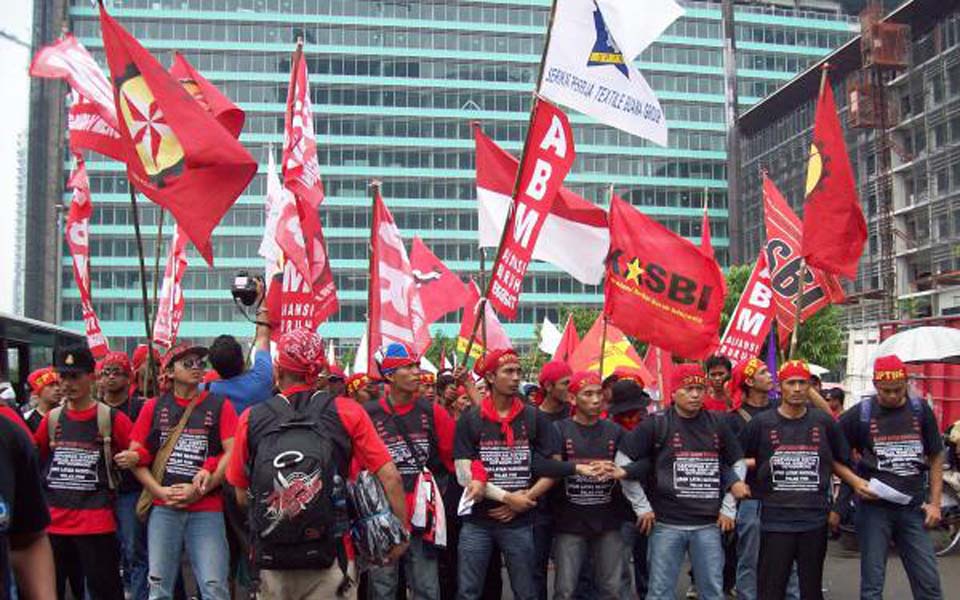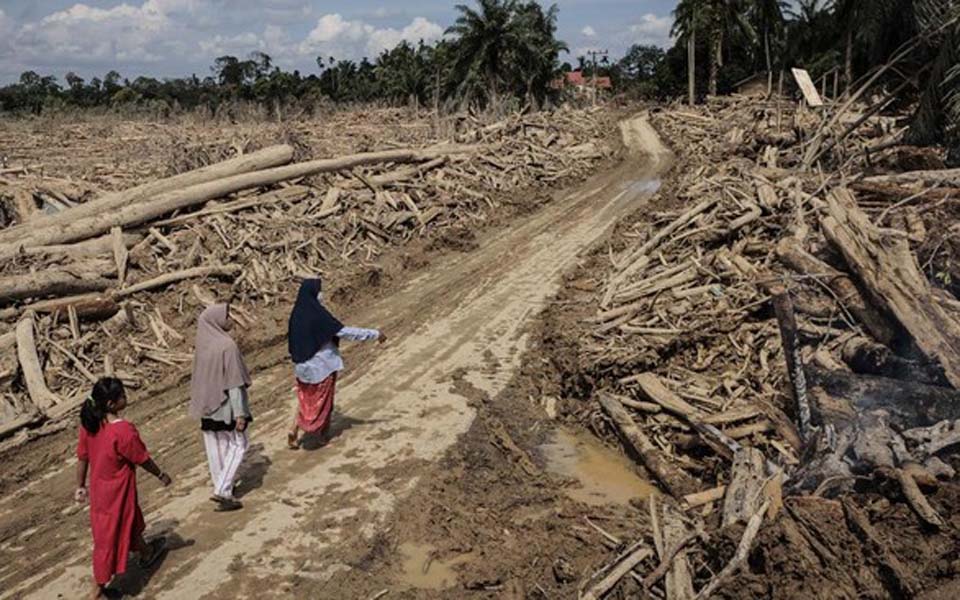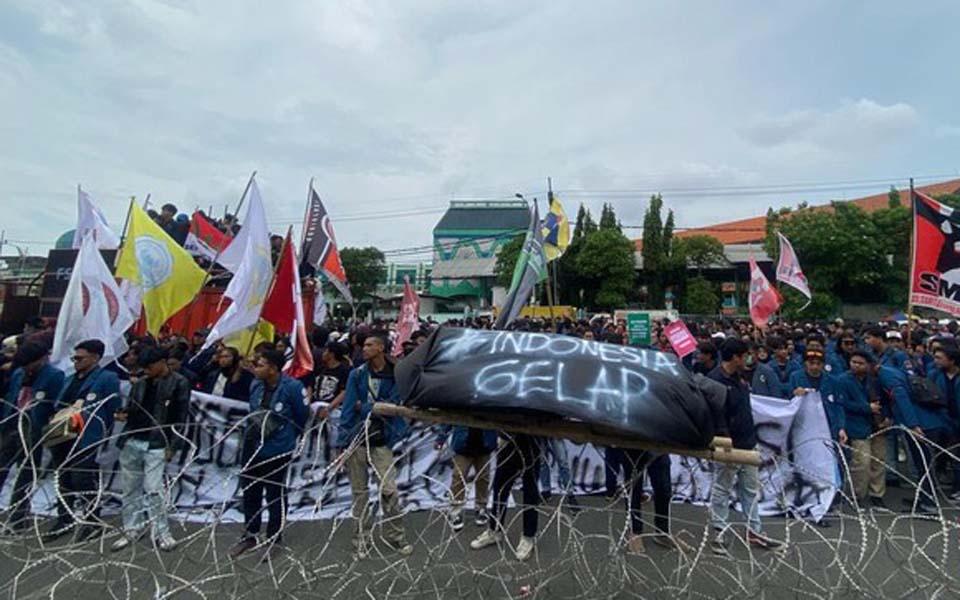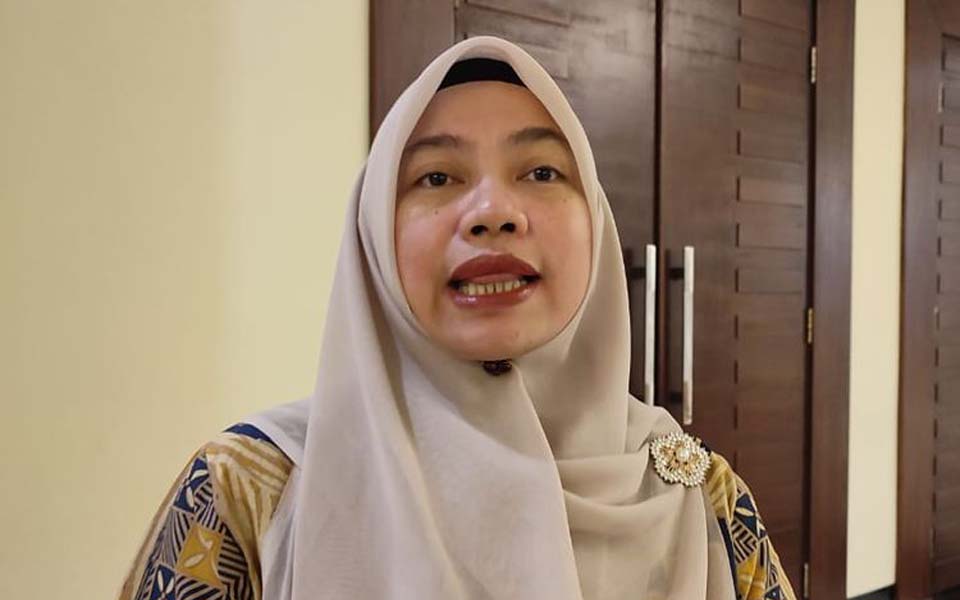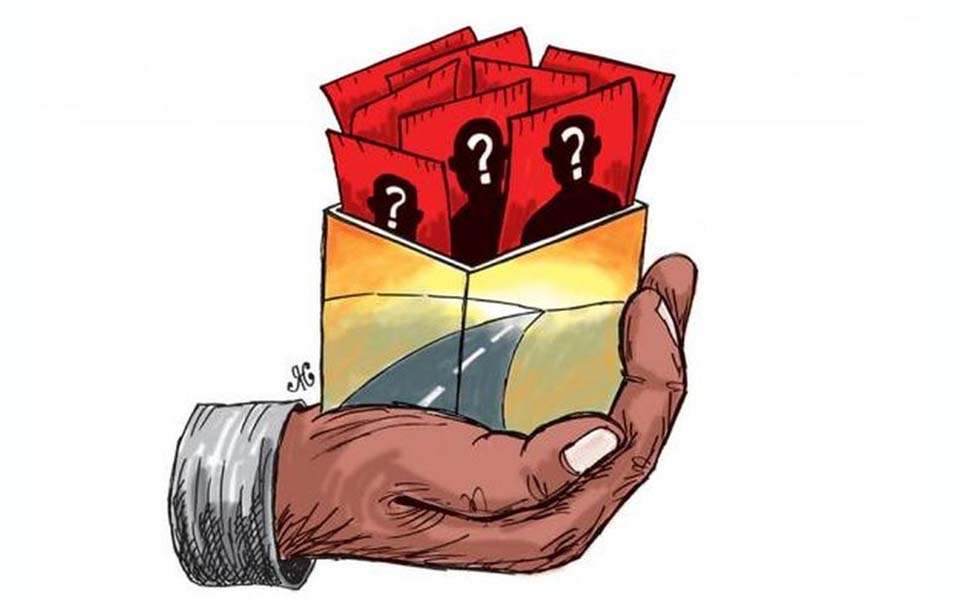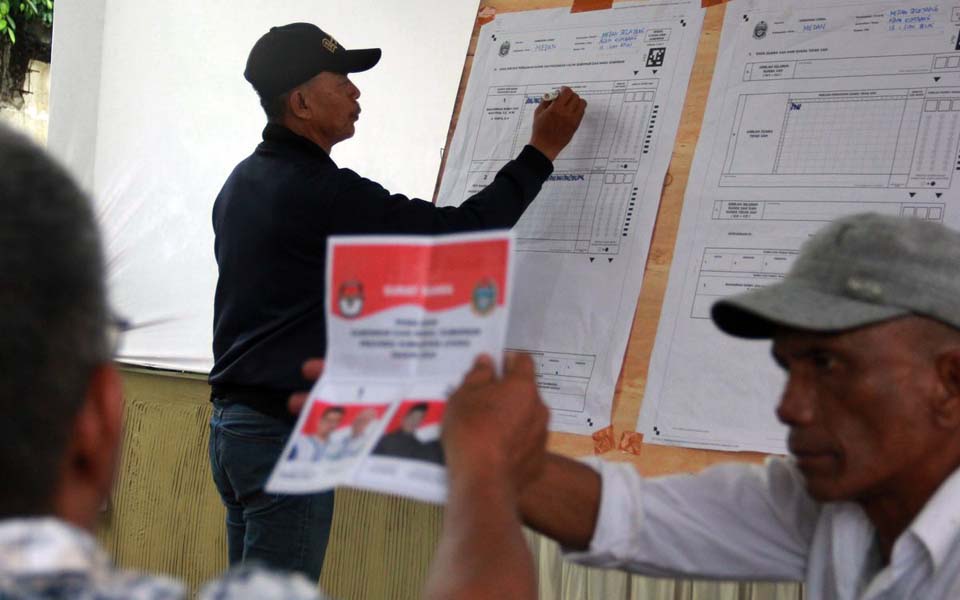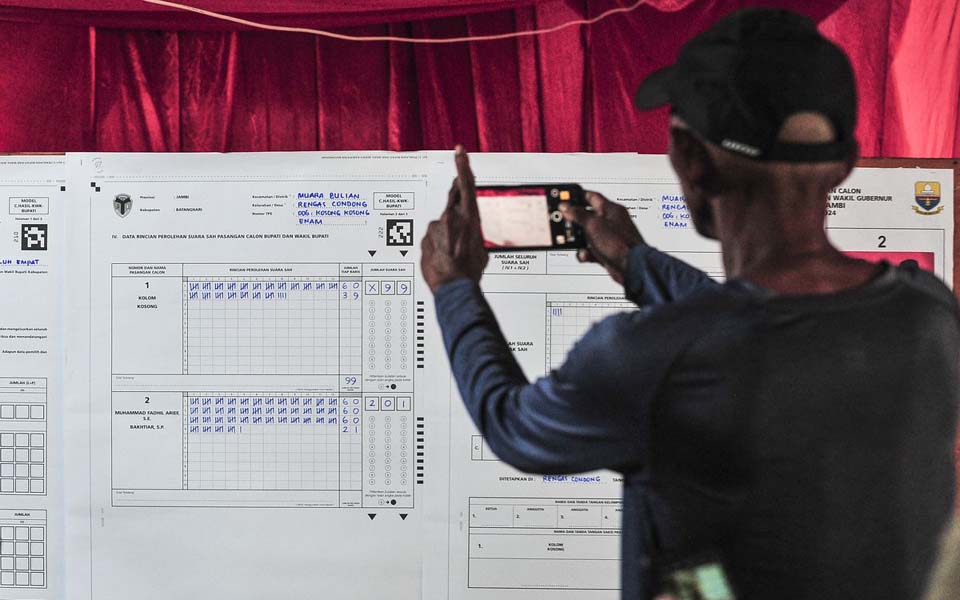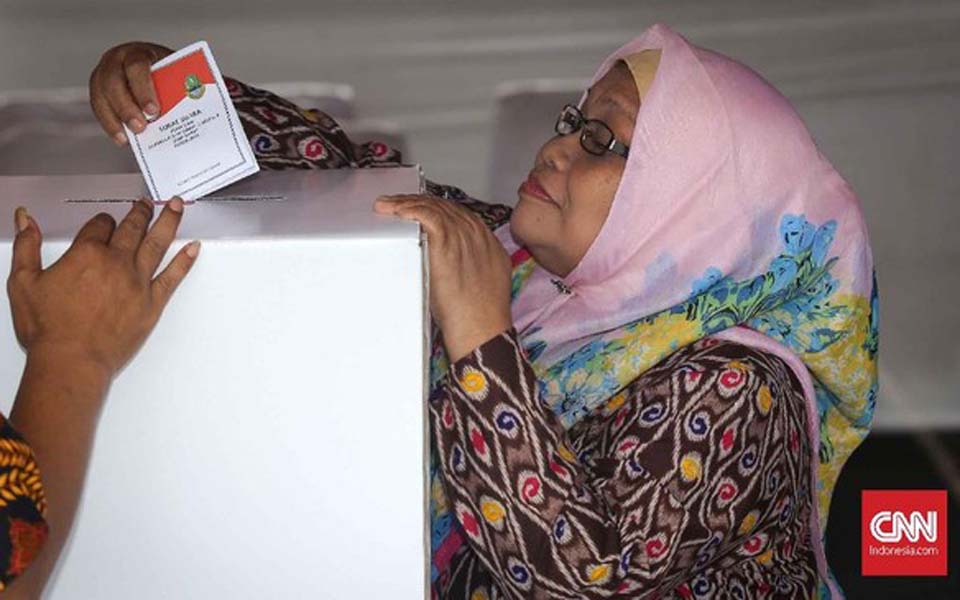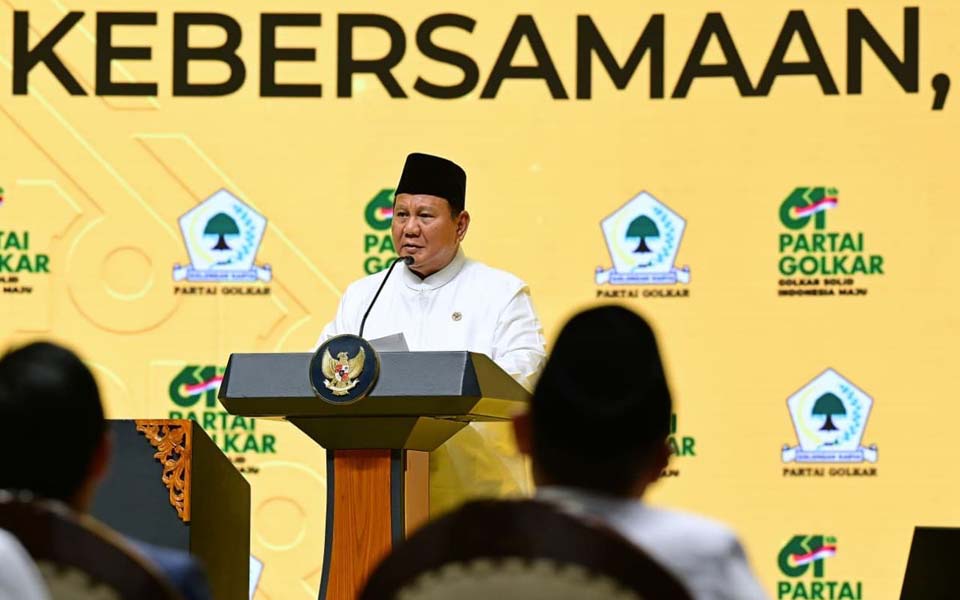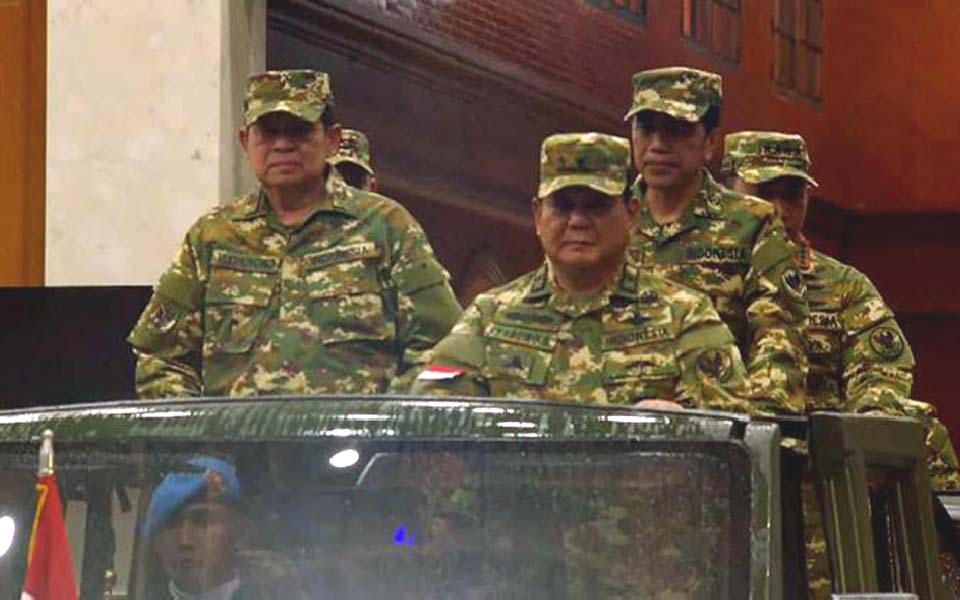Sultani – The Indonesian public’s attention of late has been focused on the actions and maneuvering of political figures who want to nominate themselves as presidential candidates for the 2009 presidential elections. Goodwill meetings between individuals and open declarations are the medium being used by these figures to increase their popularity.
Aside from the activities of individual political figures, the political parties have also been holding actions to mobilise their forces, both internally as well as coalitions with other parties. The event “A National Goodwill Meeting of Golkar and the Indonesian Democratic Party of Struggle (PDI-P)” in June was as if to demonstrate the strategy being taken by the two largest parties to solidify and consolidate their membership in the lead up to the 2009 general elections.
Political “sounding out” by individual figures as well as political parties are already visible. Goodwill forums, which bring together presidential candidates and other social figures are an effective means by which to sell an image and at the same time jack up their popularity. Open forums such as declarations have also been held to sell ideas directly to the public. The political parties meanwhile have been quietly “waging guerrilla warfare” by approaching potential figures who could be nominated as a presidential or vice presidential candidates.
Competition heating up
This phenomena illustrates that political competition has already started to heat up with the several figures who have openly declared that they are ready to contest the highest position in the country. This also gives more opportunities to the public to appraise and evaluate their capacity before deciding on their final choice. The currently liveliness of the contest also indicates a new enthusiasm where the public is involved beforehand in the process of national succession.
Out of the names that have currently entered the contest as presidential candidates the majority are dominated by old figures, who were once or are still state officials. President Susilo Bambang Yudhoyono, Vice President Jusuf Kalla and former Presidents Abdurrahman Wahid and Megawati Sukarnoputri are some of the names that have entered into the nomination count as presidential candidates. Other name that have surfaced include Yogyakarta Governor Sultan Hamengku Buwono X, former Jakarta Governor Sutiyoso and former 2004 presidential candidate Wiranto. Finally there are new and young figures such as National Mandate Party (PAN) chairperson Soetrisno Bachir and Din Syamsuddin, the general chairperson of the Islamic mass organisation Muhammadiyah.
Several of them have already declared that they will step forward to struggle for the presidency. Although in fact these declarations are still seen by the public as being too soon, it is also appreciated by the public.
This survey revealed that being the chairperson of a political party does not apparently guarantee the support of voters. Only PDI-P voters explicitly said that they want their general chairperson, Megawati, to step forward as a 2009 presidential candidate. Megawati is considered a suitable candidate by 76.4 percent of her supports to reappear on this, the most prestigious political arena. Few National Awakening Party (PKB) voters however gave their support to Abdurrahman Wahid, the founder and at the same time chairperson of the party’s advisory board. Only around 47 percent of voters consider it appropriate for the former president to again appear as a presidential candidate.
The Golkar Party is different from the two above parties with regard to the current contest. Although garnering the most votes in the 2004 general elections (21.57 percent), party supporters have not immediately given their full support to their general chairperson to step forward on to the presidential nomination stage. Currently, only 54.3 percent of Golkar voters see Jusuf Kalla as being suitable to become the candidate for the number one position in the country. The low level of support by party members for their general chairpersons is also the case for PAN’s general chairperson, Soetrisno Bachir, who only received the blessing of 39.5 percent of the party’s voters.
Sultan Hamengku Buwono X
Aside from figures with a basis in political parties, individual nominations have also received the appreciation of the political parties. Hamengku Buwono, who has already been approached by PAN and several other Islamic parties, also turns out to have be favoured by these party’s voters. Fifty-eight percent of PAN voters believe that Hamengku Buwono’s nomination is appropriate while 52.9 percent of PKB voters believe that he should become a presidential candidate.
Figures that do not yet have a political vehicle find it rather hard to jack up their popularity among already established figures. Sutiyoso appears to have his own method of informing the public of his intention to nominate himself as a candidate. Through a declaration held on October 2, Sutiyoso challenged the political parties to evaluate him and the achievements that he made while in office, both in the military as well as in civil life.
This method appears to have helped him jack up his popularity. In a survey conducted in September, Sutiyoso was only considered appropriate as a candidate by 28.2 percent of respondents. Since declaring his nomination, the public has become better aquatinted with him and in this survey 43.7 percent of respondents said that Sutiyoso is a suitable candidate for the 2009 elections.
Not shaken yet
Although several challengers had declared that they will contest the 2009 elections, President Yudhoyono’s popularity has still not been shaken. Yudhoyono is still seen as suitable to lead the nation by 75.7 percent of respondents. Moreover, two out of three respondents from the Democrat Party want Yudhoyono to come forward as a presidential candidate in 2009. Meanwhile the presidential elections were held today, although only 48.8 percent of respondents said they would vote for him, this is still three time more than the number of votes for Megawati.
The domination of old figures was still strong in this survey. Whereas respondents said that ideally they would like a regeneration of the leadership from old figures to new and younger ones, as was revealed by 46 percent of the respondents that were involved in the September Kompas survey. Indeed, it is time for the mechanisms for the election of the president to be reviewed in order to give a greater opportunity to individual presidential candidates to appear on the battle field. (Kompas Research and Development)
[Slightly abridged translated by James Balowski.]





